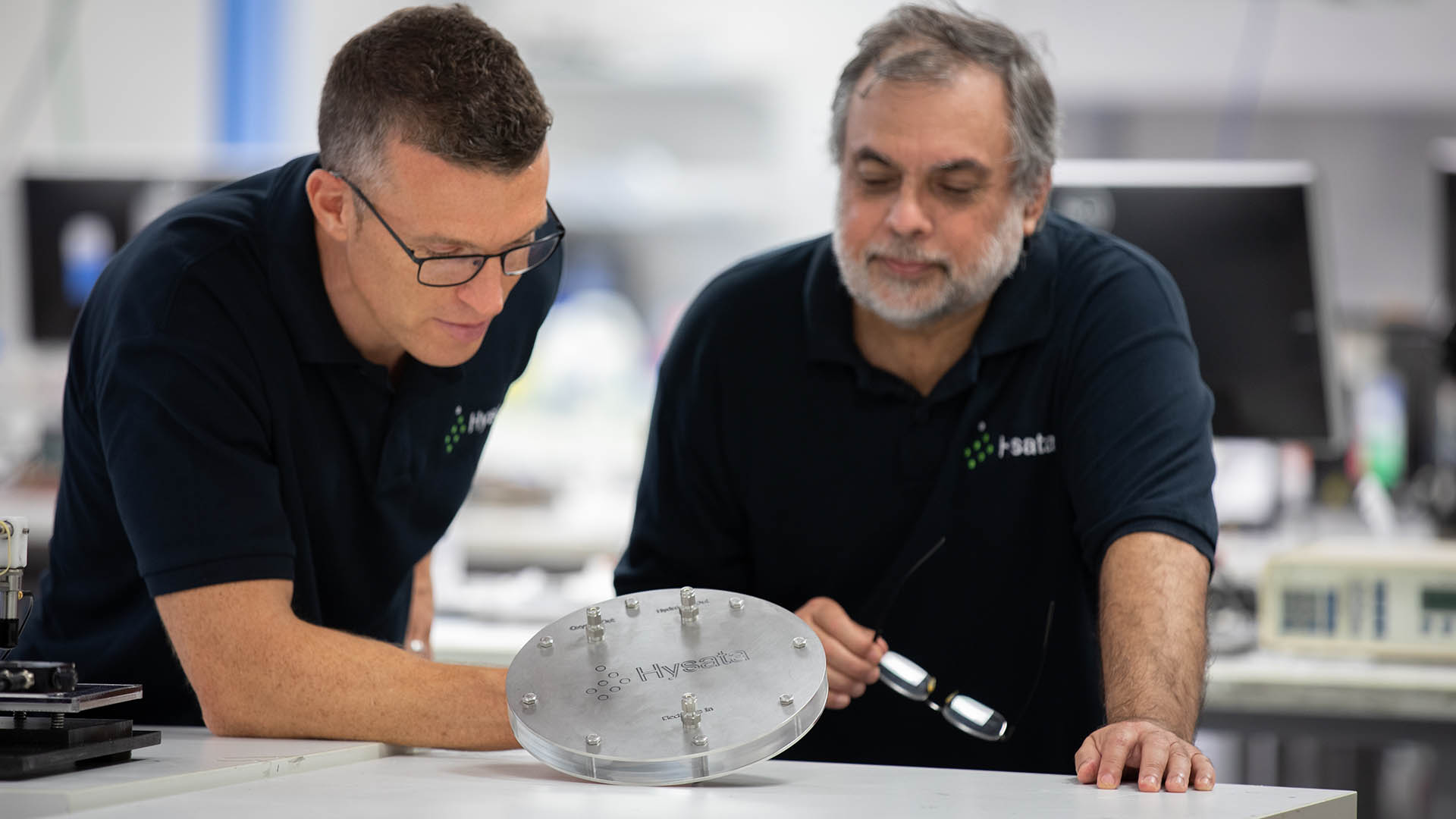May 17, 2023
Gerhard Swiegers awarded ARC Industry Laureate Fellowship for green hydrogen research
$3.7m high-efficiency electrolyser project to aid clean-energy transition, grow green hydrogen industry
University of Wollongong (UOW) electrochemist Senior Professor Gerhard Swiegers has been named a 2023 Australian Research Council (ARC) Industry Laureate Fellow and awarded a grant of $3.7 million to further his research.
The funding is for a project to accelerate the decarbonisation of industry by advancing the manufacture of high-efficiency water electrolysers that enable the cost-effective production of green hydrogen, an energy-dense renewable fuel.
The project will build on the breakthrough electrolyser technology developed by Professor Swiegers and his team, which has put low-cost, green hydrogen within reach.
As well as accelerating the decarbonisation of high-carbon industries such as heavy transport, chemical production and steel manufacture, the project will help Australia achieve its net-zero emissions commitments and contribute to developing a national green hydrogen industry.
“This project will support the development of a sovereign Australian hydrogen manufacturing capacity with accompanying decarbonisation and employment benefits,” Professor Swiegers said.
“It is estimated that green hydrogen will provide 15 to 20 per cent of global energy demand in 2050, worth $2.5 trillion. We believe this new technology can help Australia capture a large share of that market.”
The ARC Industry Fellowship Program aims to create a pathway to support academic researchers in establishing careers in industry, and industry-based researchers to work in university settings, introducing an increased two-way mobility and skill-building in research collaboration, translation and commercialisation.
The industry partner for the green hydrogen project is Hysata, a spin-off company launched to commercialise the high-efficiency electrolysers, which are about 20 per cent more efficient than other electrolysers.
The technology was developed at UOW’s Intelligent Polymer Research Institute and the ARC Centre of Excellence for Electromaterials Science.
“Green hydrogen will be essential for us to achieve net zero,” Professor Swiegers said.
“The National Hydrogen Strategy aims to leverage Australia’s abundance in solar and wind power to generate renewable electricity and then convert this to green hydrogen.
“Our electrolyser, being commercialised by Hysata, has ultra-high energy efficiency, consuming about 20 per cent less energy with accompanying higher yields of green hydrogen from renewable sources.
“This will reduce the cost of producing green hydrogen to well below $2 a kilogram, making it cost-competitive with fossil fuels.”
UOW Deputy Vice-Chancellor (Research and Sustainable Futures) Professor David Currow congratulated Professor Swiegers on his success.
“Green hydrogen has an important role to play in Australia’s and the world’s transition to clean, renewable energy and net zero emissions. The innovative technology developed by Professor Swiegers and his team here at UOW will help bring that about,” Professor Currow said.
“These high-efficiency electrolysers, now being commercialised by Hysata, have the potential to significantly shift the economics of green hydrogen production.”
UOW is committed to addressing the United Nations Sustainable Development Goals (UN SDGs), which provide a shared blueprint to achieve a better and more sustainable future for everyone. The green hydrogen project addresses UN SDGs 7 (Affordable and Clean Energy), 9 (Industry, Innovation and Infrastructure) and 13 (Climate Action).
Photo: Professor Gerhard Swiegers (right) with Hysata CEO Dr Paul Barett.
